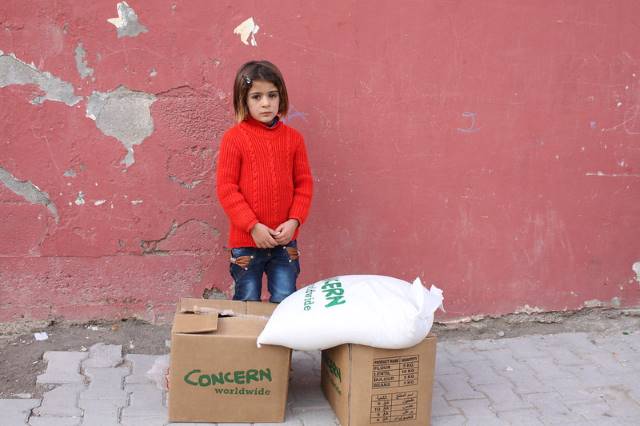The Syrian Mental Health Crisis
 In London in the United Kingdom, both Syrian children and adults seeking refuge in the nation are grappling with mental health challenges and post-traumatic stress disorder (PTSD) as a result of the conflict in Syria. Syrian refugee children are at high risk of depression, anxiety and other forms of mental illness after experiencing high levels of trauma. These untreated trauma-related mental and behavioral disorders that form the Syrian mental health crisis serve as threats to physical well-being, academic performance and economic prosperity.
In London in the United Kingdom, both Syrian children and adults seeking refuge in the nation are grappling with mental health challenges and post-traumatic stress disorder (PTSD) as a result of the conflict in Syria. Syrian refugee children are at high risk of depression, anxiety and other forms of mental illness after experiencing high levels of trauma. These untreated trauma-related mental and behavioral disorders that form the Syrian mental health crisis serve as threats to physical well-being, academic performance and economic prosperity.
The Syrian Mental Health Crisis
The Syrian conflict has caused harm that may not be fully understood for years. More than 511,000 Syrians have lost their lives since the start of the war and around 6.6 million Syrians have faced internal displacement. Syrian refugee children who have suffered during the war are most likely to have mental health issues. The U.N. Refugee Agency notes that almost 80% of Syrian refugee children had suffered a family death and 60% have endured physical attacks. More than half of all Syrian children have PTSD symptoms. They are also facing intellectual and cognitive difficulties. The U.S criminal justice system indicates that the 1.2 billion people who live in conflict exhibit frequent witness to killings and gender-based violence.
Education for Syrian Children
Syrian children face a variety of disruptions that prevent them from receiving an adequate education. Only half of these children were enrolled in schools when they arrived in countries for refuge. In Turkey and Lebanon, the enrollment rates dropped to 20%. Children have also struggled to overcome gaps in their learning. Children are more likely to obtain failing grades or drop out due to untreated psychological trauma. These mental and behavioral disorders also lead to economic productivity losses and substance abuse.
Current Mental Health Treatment
A report issued by Amnesty International in 2006 shows that 117,000 Syrian refugees living in Jordan camps have access to education, health care, food and water provided by the government. Those who live outside of these refugee camps rely on humanitarian aid and private donors. Refugees in Turkey receive free basic health care once registered with the government. However, the language barrier is still a concern, especially with regard to mental health facilities.
Therefore, the International Medical Corps (IMC) has established several ways to enhance the level of mental health care for Syrian refugees in Turkey. This includes bridging the Turkish-Arabic language divide. The IMC will also bundle mental health care with general health care and educate/license more practitioners in mental health. Furthermore, the IMC will identify developmental disabilities in children and improve the provision/policy of national mental health programs.
Humanitarian Response
The humanitarian response in Syria will strongly consider mental health care through coordination with foreign Non-Government Organizations (NGOs) that can offer urgent assistance to those in need. Sustainable capacity needs to be built by degree projects that can incorporate mental health services into the primary health system of Syria. The aim is to improve the region’s mental health workforce.
Improvements in the general accessibility, affordability and consistency of mental health resources offered to Syrian refugees are necessary. Worldwide support is essential to provide adequate mental health care to Syrian refugees. Mental health care providers trained by the World Health Organization need to extend to Syria and countries with high populations of refugees. National budgets for welfare are necessary for more funds for mental health programs. There are inadequate numbers of psychologists in Jordan, Lebanon and Syria due to the absence of academic psychology programs. Therefore, it is essential to train mental health professionals and social workers in the delivery of validated psychological services to communities impacted by the crisis throughout the region.
Children of the Future
When an entire population must concentrate on remaining alive, it becomes difficult to focus on children’s development. But, these children are the future of Syria. Thus, it is crucial to focus on the Syrian mental health crisis today, with refugee children as a priority. More comprehensive emergency and long-term services will help avoid a “lost generation of children” for Syria’s future state-building prospects.
– Aining Liang
Photo: Flickr
